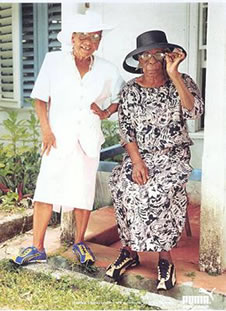Many people equate the onset of age to a period of infirmity. Despite inevitable bodily changes however, a person can enjoy a well-functioning mind and body, and should be able to live independently, with a good quality of life.
The video below shows some lovely happy old people enjoying ageing.
Normal ageing
A renowned gerontologist, Bernard Strehler, proposed five criteria for normal ageing in 1962[2]:
- Cumulative: Effects of ageing increase with time.
- Universal: All members of a species display signs of ageing.
- Progressive: Ageing is a series of gradual changes.
- Intrinsic: Changes would take place even in a “perfect” environment.
- Deleterious: Changes that occur compromise normal biological functions.
Age Discrimination
During the 1990’s, gerontologists Butler, Lewis and Sutherland researched and listed factors that have negatively influenced attitudes toward old age in America. These include:
- A history of mass immigration, mostly of the young leaving their elderly behind.
- American culture is founded on principles of individualism, independence and autonomy.
- The development of technologies that demand rapid change and specialised skills where the older adults are not seen to keep up.
- A general devaluation of tradition.
- Medical advances that have relegated most deaths to later life, producing a tendency to associate death with old age.
The media is well known to portray older subjects as stereotypes that devalue ageing in society, with television and popular magazines emphasising youth and beauty. Despite this, legendary beauties like Catherine Deneuve, Helen Mirren and Sophia Loren are still voted in Style List top 10 in their 6th and 7th decades. Some magazines or advertising companies use older models eg Christie Brinkley, Elle MacPherson
We must also not forget leaders such as Nelson Mandela and Winston Churchill – both over 70 years old when they were eminent leaders of their countries.
In healthcare in the United Kingdom, we have seen a positive change in attitude towards older people. The negative connotation of certain age-associated phrases used within the National Health Service has seen the specialism evolve from ‘geriatrics’ to ‘Care of the Elderly’, now simply to addressing the population as they are i.e. older adults.
From unpublished discussions with people receiving rehabilitation, older people have stated some benefits of age as follows:
- Older adults have experience to assist life skill development for children in education and young adults in the workforce
- Potentially have a greater awareness of priorities and what is really important in life
- Can act as a peer mentor for people of the same age to teach them a skill or encourage activity and social participation
- Can access concessions and discounts!
Peer mentors
This is a form of mentoring that started in learning environments such as schools, occurring between an older more experienced student and a new student(s). Peer mentoring has now developed into areas that use older people, whether to encourage those of the same age, or to work in intergenerational settings and mentor a younger person. It is seen as a good way of practicing social skills for the mentor and help on adapting and settling in for the mentoree. Most peer mentors are picked for their sensibility, confidence, social skills and reliability. The area of education and of physical activity is where peer mentors are being drawn most from the older population.
See also Consent and Confidentiality and Patterns of Illness, Physiological Changes and Multiple Pathology
References
- ↑ ODPHPD The voices of healthy ageing Available from: ↑ Strehler B (1962). Time, Cells and Aging. New York and London, Academic Press


